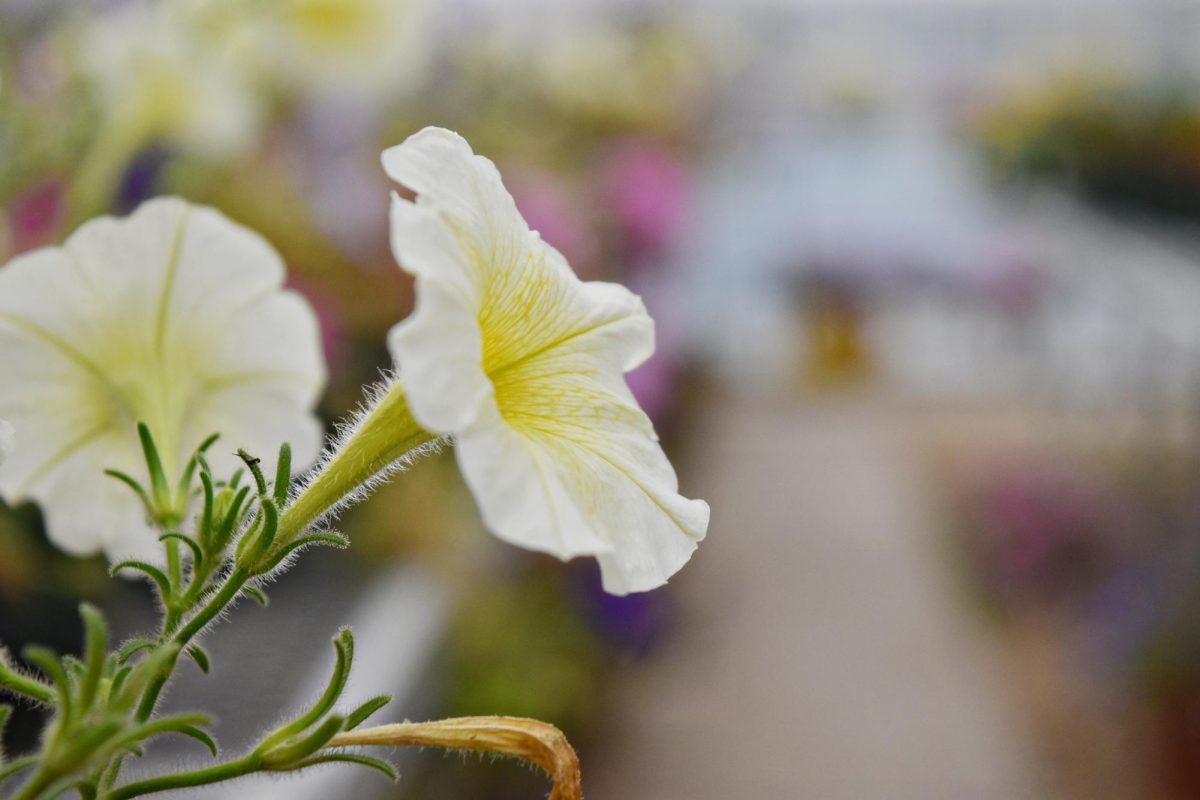Green grass, flowers blooming, and a focus on sustainability: spring is here, and the community of West Chicago is celebrating.
Earth Day fell on April 22, and the city of West Chicago marked the occasion with several initiatives. One event, a Trails Clean-up, near the Great Western Trail endpoint at Sassafras Drive, began at 9 a.m. and encouraged community members to help beautify the area.
The city regularly hosts events like this to help keep the town looking clean and welcoming. Another example is Blooming Fest, where various plants are sold to encourage residents to grow their own greenery and beautify their spaces.
“It’s good for everyone to take a day to like, think about their actions, think about how we’re affecting the earth, and just really appreciate the earth for what it is,” West Chicago Community High School senior Jessica Thunberg said.
WEGO horticulture teacher Corrie Stieglitz enjoys taking care of the environment and has thoughtful ideas on how both the city and school could improve.
“I’ve noticed a lot of native plantings downtown – at Centennial Park and along the bridge – and I think the city is doing a good job trying to beautify West Chicago in a way that supports bugs and birds,” she said.
When it comes to sustainability inside the walls of West Chicago Community High School, Stieglitz said, the situation is far more complicated.
“Our recycle bins are just for show,” Stieglitz said. “All I’m doing is complaining right now, but somebody’s got to do it. Everyone’s like, ‘nose goes,’ and nobody actually picks up the slack. That’s how it’s been for years.”

Classrooms at West Chicago Community High School are equipped with blue bins for recycling, but the district currently does not have a contracted service for removal. As previously reported by the Wildcat Chronicle, custodians throw away the materials inside these bins. Club Green, a student group focused on sustainability, attempted to manage the school’s recycling effort in previous years but could not keep up with the workload.
Stieglitz believes that students have the potential to drive environmental change – but need more support.
“When you have an idea, people say, ‘That’s great – go do it,’ but you don’t get a lot of help,” she said. “If there was more of a team effort, I think we’d get further.”
In addition to recycling concerns, Stieglitz is also grappling with another change on campus: the loss of one of the school’s two greenhouses. This summer, the south structure will be removed to make room for a transition apartment.
“When I found out it was going to be turned into a classroom, I cried,” Stieglitz said. “But whenever you get new people with new ideas, you just have to go with it. As long as there’s one [greenhouse] to cling to, I’ll manage.”
As WEGO adjusts to these changes, students like senior Ella Warsaw believe environmental learning can still thrive through community involvement and awareness.
“The best way to kind of help the environment, is just to be educating; help educate others about it and educate yourself,” Warsaw said.
Horticulture continues to provide students with hands-on experience in growing and maintaining plants while learning about sustainability and environmental care. WEGO hopes to keep offering opportunities for students to become more involved in helping the planet, even as the class downsizes.
While WEGO scales back its horticultural space, a West Chicago greenhouse just a few miles away is using its roots to grow both plants and purpose: We Grow Dreams.
“We are a very special group of people that hire people with disabilities, and there’s not enough opportunities for people with disabilities in the area, and we’re proud to be one of the largest employers of people with disabilities in the area,” the self-proclaimed “Guy in Charge,” Gregg Bettcher, said.
Workers help stock plants, vegetables, and other garden supplies, and many of the items sold support nonprofit work. Beyond employment, Bettcher said the greenhouse’s mission also supports environmental health across the city.
“They help enrich the environment and also enrich the atmosphere that they’re growing in by providing oxygen to the areas downtown and our greenhouse, located on the west side of town here has a very large footprint of oxygen-rich plants,” Bettcher said.
Closer to home, WEGO’s own transition program also contributed to Earth Day efforts. On April 22, WakeUp WeGo – the student-run coffee shop – offered free drinks to anyone who brought a reusable cup, encouraging staff to cut back on single-use waste.
As Earth Day reminds the community to reflect on their environmental impact, West Chicago continues to find ways – big and small – to grow greener. Whether through student-led projects, school initiatives, or local organizations like We Grow Dreams, the message remains clear: protecting the planet starts close to home.
This story was originally published on Wildcat Chronicle on April 22, 2025.




































